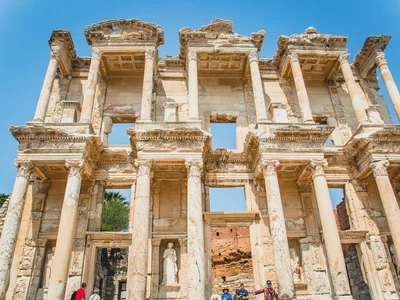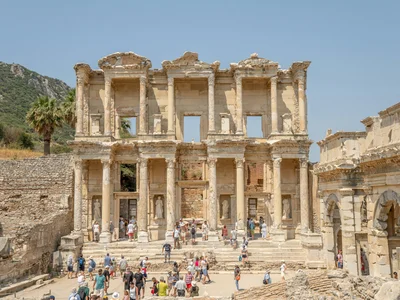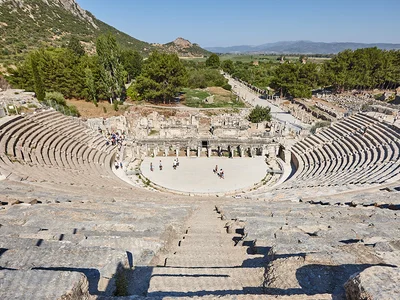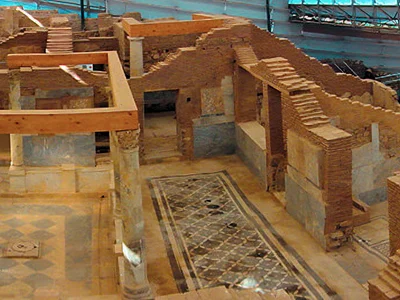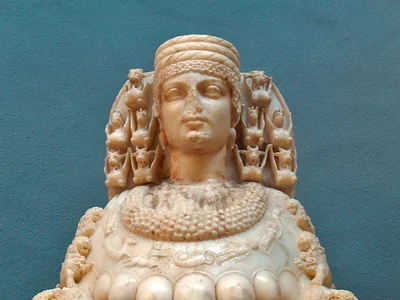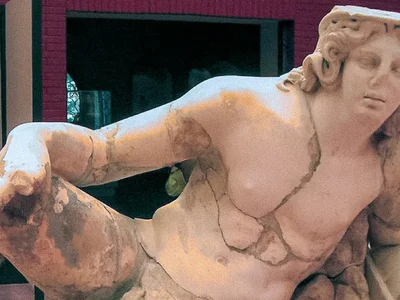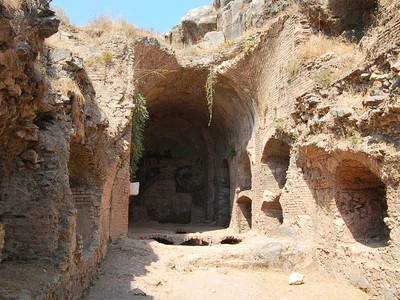Ephesus Guide
Nestled on the western coast of Asia Minor, in what is now modern-day Turkey, the ancient city of Ephesus stands as a monumental testament to the ebb and flow of human civilization. Recognized as a UNESCO World Heritage site, its sprawling ruins are not merely the remnants of a single city but a palimpsest, a landscape upon which successive cultures (Anatolian, Greek, Roman, Byzantine, and Turkish) inscribed their stories. Among its most iconic landmarks is the Library of Celsus, a stunning architectural marvel that once housed thousands of scrolls and remains one of the best-preserved structures in the ancient world.
Walking through the Ephesus ruins, visitors discover a remarkably intact Roman city with marble streets, public fountains, and monumental buildings. The Great Theatre, capable of seating 25,000 spectators, still echoes with the drama of ancient performances and was once the site where the Apostle Paul addressed the Ephesians. Nearby, the Terrace Houses reveal how the wealthy elite lived, with stunning frescoes, intricate mosaics, and sophisticated heating systems that showcase Roman domestic luxury.
The narrative of Ephesus is fundamentally shaped by a profound and enduring tension: the relentless struggle between human ambition and the inexorable forces of nature. Just a few kilometers from the main site lies the House of the Virgin Mary, a cherished pilgrimage destination where tradition holds that Mary spent her final years. The city's spiritual heritage also centers on Artemis, the revered goddess whose cult transformed Ephesus into one of antiquity's greatest religious centers.
To fully appreciate the artifacts unearthed from centuries of excavation, a visit to the Ephesus Archaeological Museum in nearby Selcuk is essential. The museum houses exquisite sculptures, coins, and everyday objects that bring ancient Ephesian life vividly to life. For those drawn to legend and mystery, the Cave of the Seven Sleepers tells the remarkable story of young men who slept for centuries, a tale honored by both Christians and Muslims. And while only a single column remains of the Temple of Artemis (once one of the Seven Wonders of the Ancient World), the site still evokes the grandeur that drew pilgrims from across the Mediterranean.
Planning Your Visit
Ephesus is located just 20 km from Kusadasi, making it an easy day trip. For transportation options, see our Getting Around Kusadasi guide. If you're looking to explore more of the region, check out our 7 Unforgettable Day Trips from Kusadasi which includes Ephesus and nearby attractions like Sirince Village and Pamukkale.
After exploring the ancient ruins, head back to Kusadasi to enjoy the beautiful beaches, sample local cuisine at the best restaurants, or experience the vibrant nightlife.

